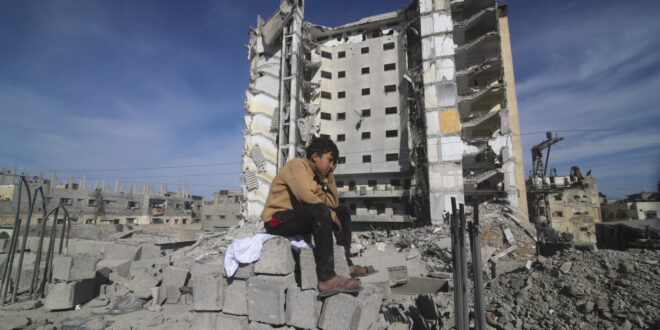How Israeli forces go into Rafah will impact the state of the U.S.-Israel relationship.
The official argued that lack of action is a sign that Israel is taking U.S. warnings into account. “Israel is going to do what Israel decides to do. It’s kind of like trying to predict the weather,” the DOD official continued. “But has the message sent been heard? Yes.”
All officials POLITICO spoke to stressed that Israel’s plans could change anytime, declining to say for certain that Israel would not eventually conduct a larger operation, perhaps due to changes in the country’s political environment.
The U.S. administration has also asserted in recent days that Biden’s statement about a “red line” was not definitive.
“The president didn’t make any declarations or pronouncements or announcements,” Sullivan told reporters Tuesday from the White House podium. “Our position is that a military operation in Rafah that does not protect civilians, that cuts off the main arteries of humanitarian assistance and that places enormous pressure on the Israel-Egypt border is not something that he can support.”
Prime Minister Benjamin Netanyahu is also keeping up his pressure campaign. The Israeli leader spoke by video Tuesday to the American Israel Public Affairs Committee, a pro-Israel group in Washington, to defend his nation’s protection of civilians during the war. Israel’s friends, he said, “cannot say you support Israel’s goal of destroying Hamas and then oppose Israel when it takes the actions necessary to achieve that goal.”
But how Israel conducts a Rafah operation will impact the state of its alliance with the U.S.
At least one Senate Democrat, Maryland’s Chris Van Hollen, has considered blocking certain military sales to Israel depending on how the operation goes. The critic of Biden’s Israel policy called on the president to reprimand Israel if its military campaign in Rafah goes too far.
“When the president of the United States draws a red line, the president needs to ensure that there’s an enforcement mechanism. Otherwise, you look feckless,” he told a Wednesday audience at the Center for Strategic and International Studies think tank. “If Prime Minister Netanyahu just ignores the president of the United States after the president has said that that’s a red line, then it just undermines our effectiveness overall.”
 Geostrategic Media Political Commentary, Analysis, Security, Defense
Geostrategic Media Political Commentary, Analysis, Security, Defense





